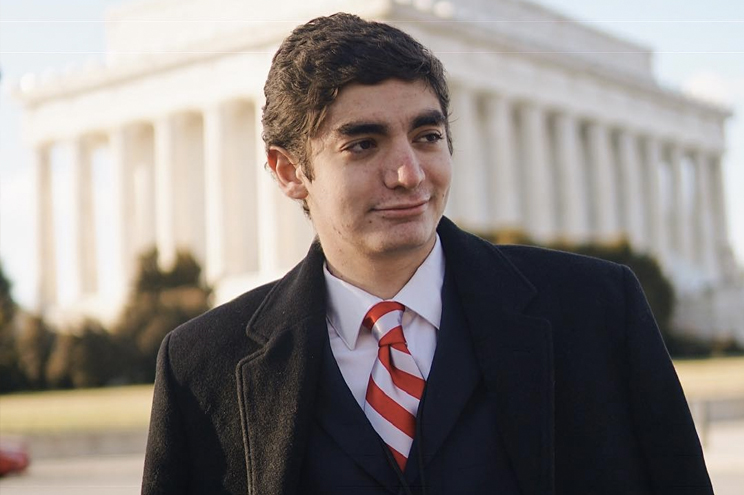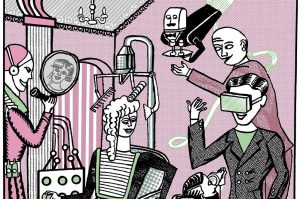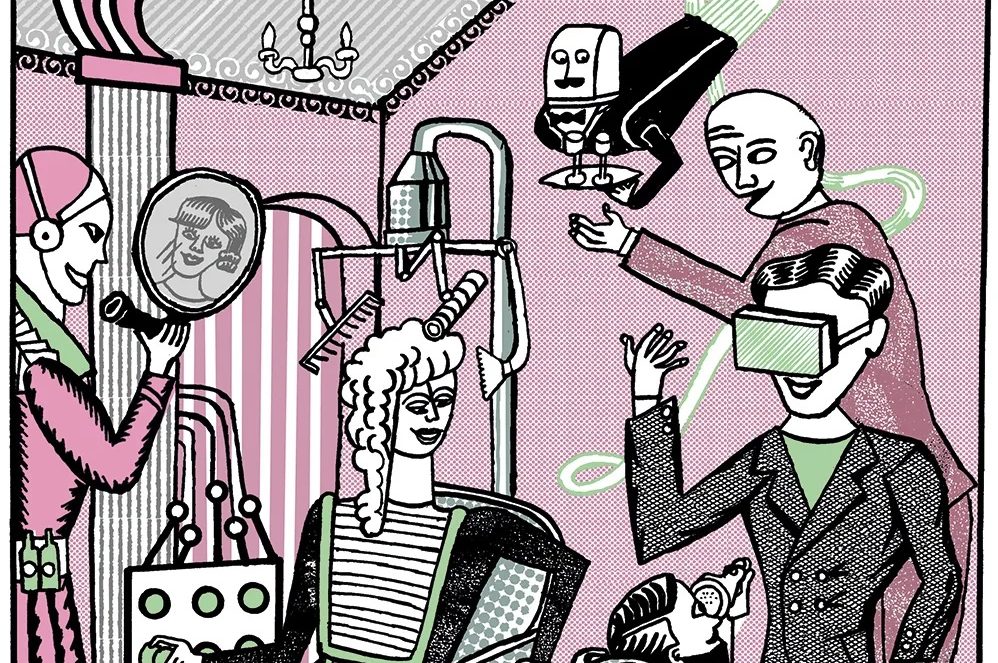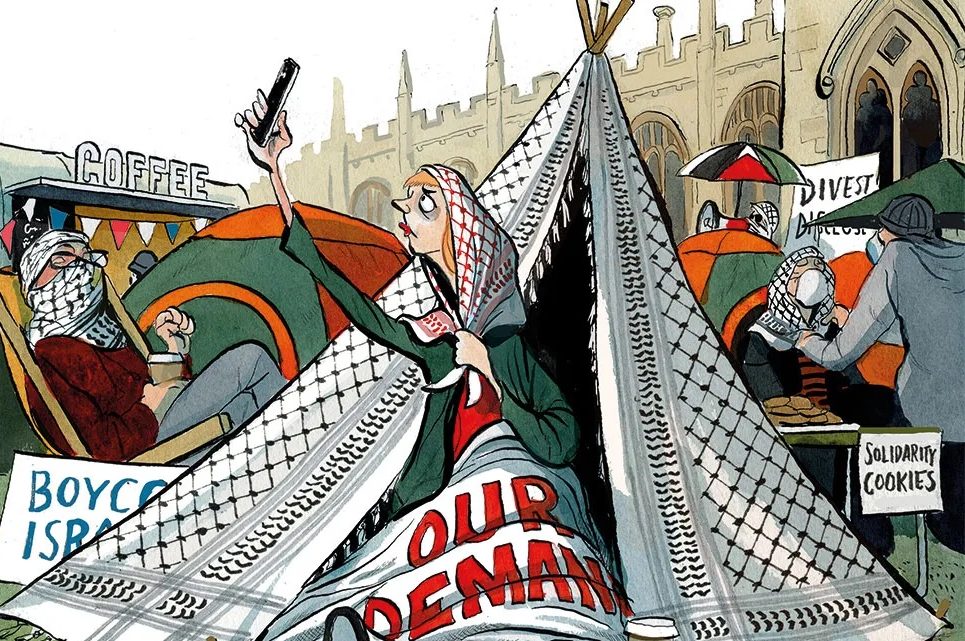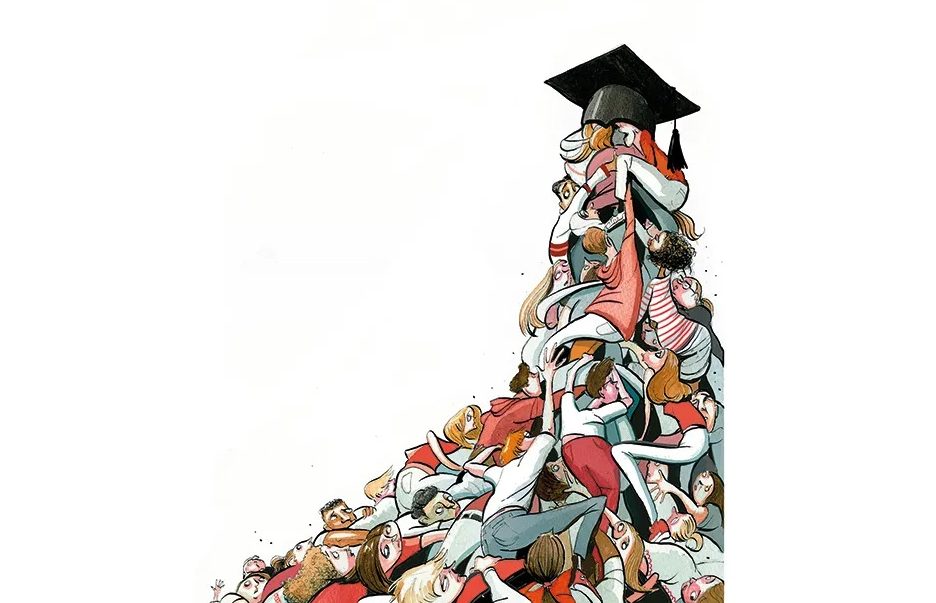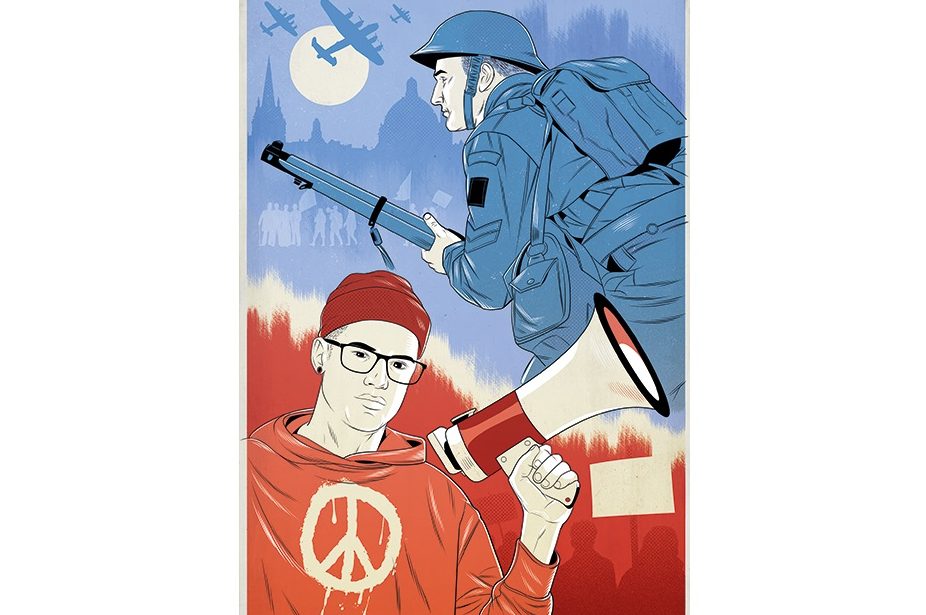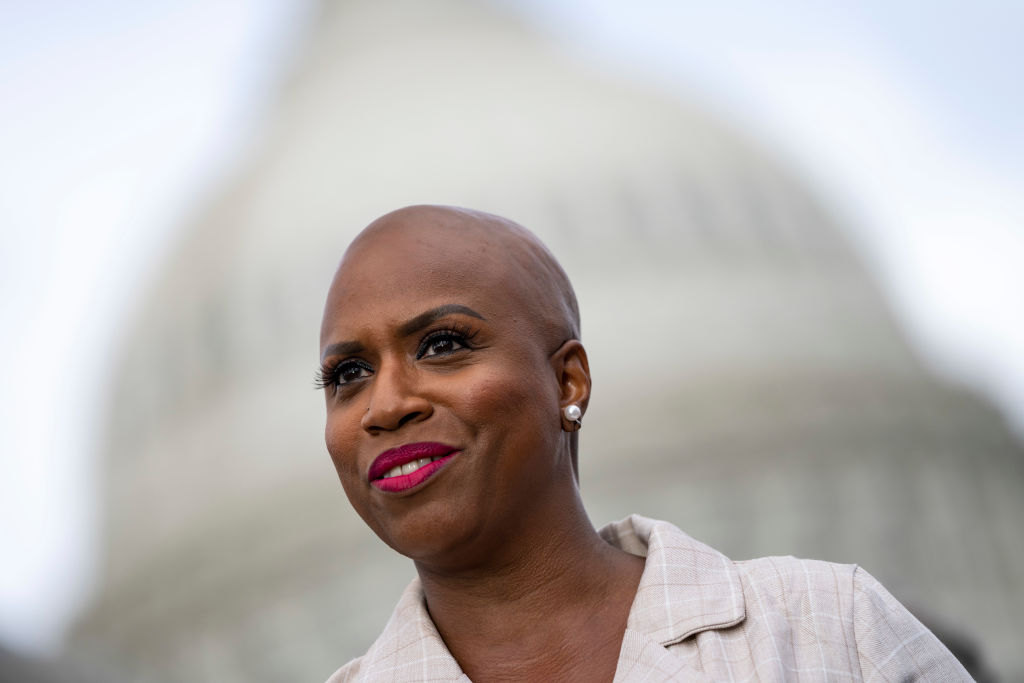Only just turned 18, David E. Oks extends over a lean 6’1 frame, bent slightly forward. His voice, called ‘terrifyingly deep’ by a fan, is unforgettable once you’ve heard it. Overall, he seems more like a Romanian apparatchik than the architect of the 2020 Democratic primaries’ biggest anti-war disruption.
If you weren’t aware, Oks, along with high school friend Henry Williams, was the teenage manager of former Alaska senator Mike Gravel’s insurgent bid for the Democratic nomination. In office from 1969 to 1981, Gravel read the Pentagon Papers into the congressional record to make them publicly available and became a leading figure in the end of the draft and the Vietnam War.
For Oks, this is what mattered most when he convinced the former senator to join the crowded primary field. In his estimation, ‘Gravel comes from a non-interventionist lineage within American politics that goes back to figures like Thomas P. Gore and Hiram Johnson.’
‘During the last decade,’ Oks tells me, ‘the best excuse for an anti-war figure in the mainstream — and so I’m excluding Dennis Kucinich, Ron Paul, and Gravel — was Barack Obama, who of course bombed many, many countries.’
Unsurprisingly, Oks coined Gravel 2020’s laconic slogan, ‘No more wars.’
Reemerging after decades of dormancy, he thinks, anti-war politics are on the rise in America. ‘The cruder forms of that reemergence can be seen in Donald Trump,’ he says. ‘But I think that there’s hope that the broader revolt against neocons will give us some fruitful results in terms of peace.’
When asked about Trump’s withdrawal from Afghanistan, Oks is firm: ‘It should be immediate. The point of so-called “timetables” is that they can be delayed without end.’
‘So much blood and treasure wasted just to have a deal with the fucking Taliban. What a fucking mistake.’
‘Neoliberalism and neoconservatism,’ in his view, are responsible for the death of the American dream.
‘They’re both of the same soulless consequentialism that takes all meaning out of life and views statistics as a god,’ he says. ‘Joseph Sobran writes pretty brilliantly on that in one of his longer essays.’
To call Oks an atypical left-wing leader would be an understatement. His vision for America is ‘very close to Dorothy Day’s vision of cooperation instead of competition.’ Among other heroes like liberal philosopher John Rawls and Orthodox Jewish intellectual Yeshayahu Leibowitz, Oks admires Gore Vidal and Bill Kauffman: ‘Vidal had that classic Henry Adams-like patrician dismay for what American society had become.’
So what next for David Oks? ‘Well, I’m going to be a fellow at Jacobin magazine. I don’t plan on going into politics.’
Oks balks at the suggestion that he is already in politics.
‘I’d prefer not to do it as a career. Such a disgusting way to go through life. Most people who grow up wanting to be politicians are dangerous to society. They should be cordoned off, and we shouldn’t encourage them. Anybody who desires dominion over others is dangerous.’
Oks instead intends to be an academic and ‘occasional political philosopher.’
‘Starting this fall, I’ll be reading history at Pembroke College, Oxford,’ he says. ‘I decided to go to Oxford because I wanted to expatriate myself, but only temporarily, so I’d be a truncated T.S. Eliot.’
As anti-war politics enters the mainstream, Oks does not downplay the political significance of Gravel’s concluded campaign. ‘We qualified for the debates. We got something like 10 times the donors that Bill de Blasio did, and many more than people like Steve Bullock and John Hickenlooper.
‘And remember, Henry and I did that at 18.’



